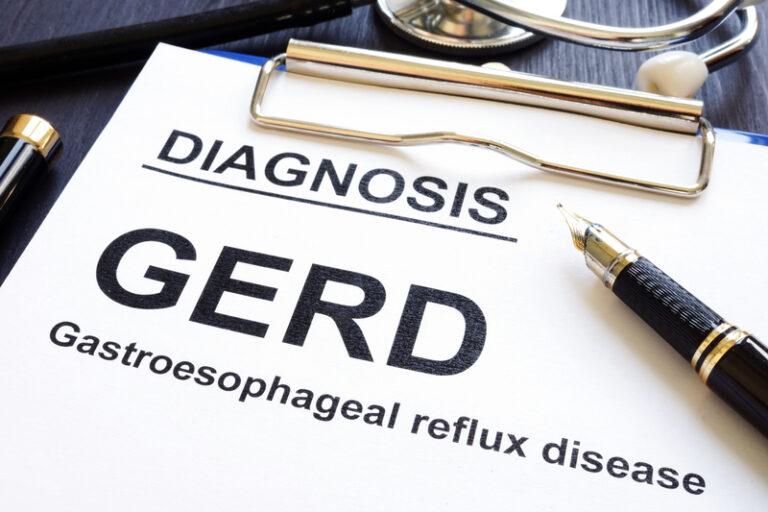Gastroesophageal reflux disease (GERD) is a condition of chronic, relapsing heartburn, acid reflux, or acid indigestion that is experienced at least twice a week, affecting between 64 to 90 million U.S. adults. Left untreated, GERD can lead to stomach ulcers and Barrett’s Esophagus, a precancerous condition in which the lining of the esophagus is damaged by stomach acid. And yet a growing number of studies reveal that current medical treatment—prescription or OTC medications that suppress stomach acid—lead to even worse health consequences!
The most common class of prescription medications used to treat GERD are Protein Pump Inhibitors, or PPI’s. Multiple studies have linked PPI’s to a dramatic increase in osteoporosis and infection. In a study of 161,000 postmenopausal women it was found that taking PPI’s increased the risk of spinal fractures by 47 percent! A study of 100,000 hospitalized patients revealed those taking PPI’s had a 74% increased risk of getting Clostridium difficile, a hard-to-treat intestinal infection that can occur in people taking antibiotics.
Side effects of osteoporosis and increased infection make sense if we understand the vital function of our stomach acid. Our stomach acid is critical for digesting protein and breaking down minerals for absorption. If we are chronically suppressing our stomach acid, we will not be absorbing critical nutrients from our food! Researchers know that chronic PPI use leads to calcium deficiency, for example.
Stomach acid is also essential for killing pathogenic microbes in our food and preventing them from entering our digestive tract–where they can enter our blood and affect other organs and tissues. No wonder depressed stomach acid causes increased risk of infection!
Is GERD actually caused by too much stomach acid? Amazingly, the medical community has known for decades that GERD is overwhelmingly due to a deficiency of stomach acid and not the other way around. This makes sense because incidence of GERD increases greatly with age; by age 60, for example, we are often as much as 75 percent deficient! There are many other causes of depressed stomach acid, including smoking, stress eating, and food sensitivities. Rather than suppressing our stomach acid even more, we need to be ferreting out the true causes of our condition and addressing them.
If you have GERD, the good news is you can get off your acid blocking medication and heal your gut. At Vital Health, we take the time to identify the causes through in-depth questioning and specialized testing so that we can provide you with the right supplements and diet recommendations. And give acupuncture a try! A number of clinical studies show that acupuncture can be a highly effective tool in inhibiting acid reflux and restoring stomach function to normal levels.
©2022 Darcy Greenwald, M.S.O.M., L.Ac. and Vital Health







